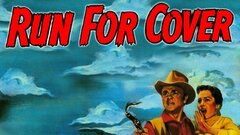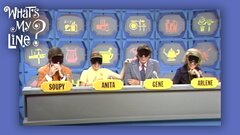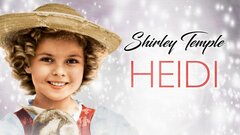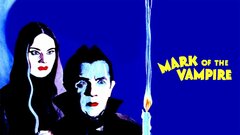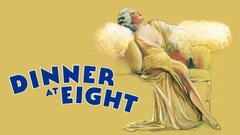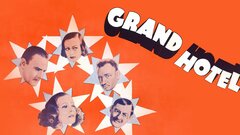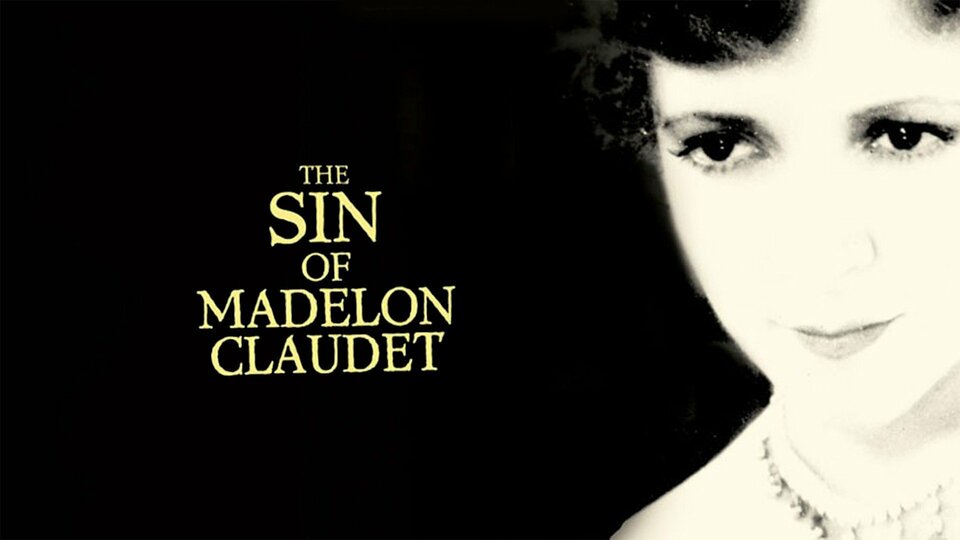Though the Academy of Motion Picture Arts and Sciences created an honorary award in his name, Jean Hersholt's legacy did not endure apace with that of co-stars Rudolph Valentino, Greta Garbo, Clark Gable, and James Cagney. Emigrating from Denmark before World War I, Hersholt's continental air made him a natural to play aristocrats and professional men in silent films and his career was given a boost when Erich von Stroheim cast him as the heavy in "Greed" (1924).
The advent of sound and Hersholt's Danish accent knocked the actor down the Hollywood cast list but he excelled in character parts at MGM and worked his way back up on the marquee, starring with Shirley Temple in the family favorite "Heidi" (1937) and playing a dedicated small-town doctor in "Meet Dr. Christian" (1939) and its five sequels.
His philanthropic work inspired the Academy to create the Jean Hersholt Humanitarian Award in 1940 while he spent the WWII sending morale-boosting radio broadcasts to Nazi-occupied Denmark. Seen less often in films after accepting the presidency of the Academy in 1945, Hersholt devoted considerable time to translating into English the folk tales of countryman Hans Christian Anderson. Diagnosed with inoperable cancer, he rallied to bring "Dr. Christian" to television before his death in June 1956. Though he remained obscure to all but the most ardent classic film fans, Jean Hersholt's legacy of philanthropy immortalized him in cinema history as the man who gave Hollywood its conscience.
Jean Pierre Hersholt was born in Copenhagen, Denmark, on July 12, 1886. The son of Danish Folk Theater actors, he spent much of his childhood on tour with his parents. A gifted artist, Hersholt obtained a degree from the Copenhagen Art School but was drawn toward the burgeoning medium of motion pictures. He made his film debut in three Nordisk Film short subjects directed by Louis Halberstadt and Viggo Larsen. The actor emigrated to the United States in 1913, married Canadian national Via Anderson a year later, and drifted towards San Francisco in 1915 for the Panama-Pacific International Exposition. Arriving in Hollywood later that year, Hersholt found work as an extra in the William S. Hart Westerns "Hell's Hinges" (1915) and "The Disciple" (1915) before graduating to character parts for Thomas H. Ince, at whose Santa Monica studio Hersholt came calling. Ultimately, his continental bearing afforded him plum roles as viscounts, professors, clergymen, and gentlemen. Obtaining citizenship in 1918, Hersholt appeared in Rex Ingram's "Four Horsemen of the Apocalypse" (1921), supporting star Rudolph Valentino in the tale of a family split asunder by the onset of World War I, and played a murderer bedeviling Mary Pickford in "Tess of the Storm Country" (1922).
It was Erich von Stroheim who gave Hersholt his first significant break in Hollywood, casting him in a pivotal role in "Greed" (1924), the maverick filmmaker's nine-hour adaptation of Frank Norris' frontier novel McTeague. Though Von Stroheim had called Hersholt in for an audition on the strength of his prior film performances, the Austrian expatriate felt Hersholt seemed in person too kindly and soft to play the duplicitous Marcus Schouler - prompting Hersholt to return the next day, his clothes shabby and sporting a so-called Bowery haircut to prove he could portray a gritty character. Though MGM cut "Greed" down to two hours, Hersholt benefited from the publicity and enjoyed an uptake in the quality of his subsequent film roles. He played an ambitious governor plotting against Douglas Fairbanks in "Don Q, Son of Zorro" (1925) and was the loutish husband of Belle Bennett's "Stella Dallas" (1925). By the time he was cast as a wealthy Jewish merchant in turmoil over his beloved daughter's marriage to a Catholic in the comedy "Abie's Irish Rose" (1928), Hersholt had been dubbed by Photoplay "the hardest working actor in Hollywood."
The advent of talking pictures proved problematic to Hersholt, whose Danish accent relegated him to character parts. He was a red herring in "The Cat Creeps" (1930), Rupert Julian's early sound remake of the silent spookshow "The Cat and the Canary" (1927), and Greta Garbo's disapproving uncle In "Susan Lennox (Her Fall and Rise)" (1931), whose mania for social legitimacy prompts him to thwart her affair with engineer Clark Gable. In "Private Lives" (1931), an adaptation of the hit Noel Coward play, Hersholt was the odd man out in a romantic quadrangle consisting of Robert Montgomery, Norma Shearer, Reginald Denny and Una Merkel, while in the downbeat pre-Code drama "Beast of the City" (1932) he was a Chicago gangster opposing dedicated crime smasher Walter Houston. In the all-star "Grand Hotel" (1932), Hersholt more than held his own as a lowly porter amongst such high-wattage stars as Garbo, Crawford, Wallace Beery, and both John and Lionel Barrymore. In "Mask of Fu Manchu" (1932), the actor played it straight as an English explorer plagued by Boris Karloff's Asian arch-fiend, while in "Mark of the Vampire" (1935), Hersholt was an aristocratic murderer attempting to pin a crime of passion on suspected vampire Bela Lugosi.
It was a perfect career irony that the role by which Hersholt would be remembered for the rest of his life found him all but unrecognizable. To play Alpine mountain child Shirley Temple's guardian in "Heidi" (1937), directed by Allan Dwan, Hersholt was fitted with a snowy wig and Kris Kringle-style whiskers. Though the assignment asked little of the veteran actor, it essentially cleaned the slate of his many years of onscreen villainy, reclassifying the actor as a cuddly do-gooder. He went on to essay a number of kinder, gentler roles - most memorably as the Montreal obstetrician who delivers the famous Dionne Quintuplets in the fact-based "The Country Doctor" (1936) and its sequels, "Reunion" (1936) and "Five of a Kind" (1938). Hersholt attempted to spin off the doctor as the main character of a radio series, but when he was unable to obtain the rights, he created an entirely new character - Dr. Paul Christian (the surname cadged from his countryman Hans Christian Anderson), who made his radio debut on CBS in November 1937.
The year after he brought his creation to the big screen in "Meet Dr. Christian" (1939), Hersholt was honored by the Academy of Motion Picture Arts and Sciences for helping to establish the charitable Motion Picture Relief Fund. In his name, the Jean Hersholt Humanitarian Award was created. Hersholt reprised the character of Dr. Christian in five more films, capping the series with "They Meet Again" (1941). During World War II, he founded the Danish-American Relief Service and participated in morale-boosting broadcasts pointed to Nazi-occupied Denmark. Hersholt served as president of the Academy of Motion Picture Arts and Sciences between 1945-1949. In the comedy "Dancing in the Dark" (1949), he cameoed as himself, extending a characteristically empathetic hand to Hollywood has-been William Powell. In his later years, Hersholt stepped back from his busy acting career and devoted his time to the translation into English of dozens of fairy tales by Hans Christian Anderson. In 1950, he was awarded another honorary Oscar for his services to the motion picture industry.
Hersholt completed one more feature film, Nicholas Ray's offbeat Western "Run for Cover" (1955), before he was diagnosed with terminal cancer. Facing imminent death, he rallied to reprise the character of beloved small-town doctor Paul Christian for the syndicated television series "Dr. Christian" (1956-57), and appeared in two episodes before handing the show over to younger actor Macdonald Carey, cast as Christian's nephew Mark. Jean Hersholt died on June 2, 1956, in Beverly Hills. In 1960, a star on the Hollywood Walk of Fame was laid in his honor. In the years since Hersholt's death, the Jean Hersholt Humanitarian Award was given to such recipients as Charlton Heston, Audrey Hepburn, Elizabeth Taylor, Paul Newman, Quincy Jones, Jerry Lewis, and Oprah Winfrey. Not widely known beyond the inner circle of the American entertainment industry was that the late comedic actor Leslie Nielson was Hersholt's nephew.
By Richard Harland Smith


